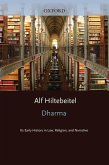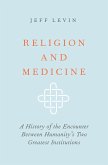Well-Mannered Medicine explores the moral discourses on the practice of medicine in the foundational texts of Ayurveda. The classical ayurvedic treatises were composed in Sanskrit between the first and the seventh centuries CE, and later works, dating into the sixteenth century CE, are still considered strongly authoritative. As Wujastyk shows, these works testify to an elaborate system of medical ethics and etiquette. Physicians looked to the ayurvedic treatises for a guide to professional conduct. Ayurvedic discourses on good medical practice depict the physician as highly-educated, skilled, moral, and well-mannered. The rules of conduct positioned physicians within mainstream society and characterized medical practice as a trustworthy and socially acceptable profession. At the same time, professional success was largely based on a particular physician's ability to cure his patients. This resulted in tension, as some treatments and medications were considered socially or religiously unacceptable. Doctors needed to treat their patients successfully while ostensibly following the rules of acceptable behavior. Wujastyk offers insight into the many unorthodox methods of avoiding conflict while ensuring patient compliance shown in the ayurvedic treatises, giving a disarmingly candid perspective on the realities of medical practice and its crucial role in a profoundly well-mannered society.
Dieser Download kann aus rechtlichen Gründen nur mit Rechnungsadresse in A, B, BG, CY, CZ, D, DK, EW, E, FIN, F, GR, HR, H, IRL, I, LT, L, LR, M, NL, PL, P, R, S, SLO, SK ausgeliefert werden.
Hinweis: Dieser Artikel kann nur an eine deutsche Lieferadresse ausgeliefert werden.









